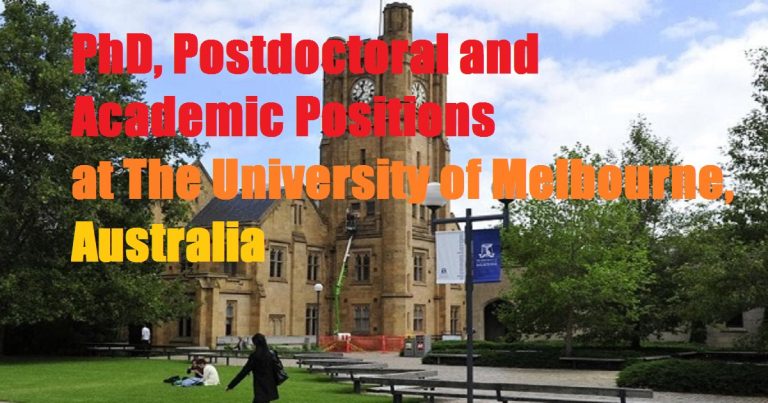
The School of Biomedical Engineering (SBME) at the University of British Columbia (UBC) in Vancouver, BC, Canada invites applications for a postdoctoral research fellow position to work on Mammalian Synthetic Biology in the Yachie Lab (https://yachie-lab.org/).
The Faculties of Medicine and Applied Science have partnered to create the SBME, a new flagship entity at UBC, and a top strategic priority for the University and both Faculties. The SBME is a nucleus for education and training, research, and innovation in biomedical engineering, creating new knowledge, new academic and training programs, and fostering translation and innovation. UBC SBME trainees will distinguish themselves by deep training in biology, deconstructed using engineering science and design, and applied to the solution of real-world biomedical challenges. Our SBME faculty conduct research that advances our fundamental understanding of human biology, and yields technologies and therapies that advance our health and wellbeing.
This position is funded by the Canadian Institutes for Health Research (CIHR) to develop new biotechnologies and study mammalian development. In mammalian development, cells proliferate and dynamically change their function to form diverse structures of organs and network systems in the body. We have yet to understand the complete cell lineage and cell differentiation trajectories during the whole-body developmental procedure.
Combining DNA barcodes, CRISPR genome editing, and high-throughput genomics technologies, the Yachie lab is developing a high-resolution “DNA event recording” system, by which molecular and cellular information within individual cells of a multicellular organism is progressively stored in cell-embedded synthetic “DNA tapes.” Such a system allows the readout of historical molecular expression profiles of many cells using high-throughput single-cell sequencing. Projects currently run by the team include the development of engineered mice harboring high-content DNA event recorders and high-performance computing methods to decipher the map of how every cell divides and differentiates through the entire course of mammalian development.
Responsibilities
The successful candidate will collaborate with the members of the laboratory, bravely integrate diverse knowledge and technologies in biology, and develop new biotechnologies that tackle key (or even undetermined) questions in the field.
The responsibilities of this position, to be determined by the Supervisor, are flexible and depend on the skills and research interests of the successful applicant. Specific tasks may include:
- Rearing and basic handling of mice;
- Mouse engineering (ESC injection, pronuclear injection, CRISPR genome editing, etc.);
- Cell engineering (mouse stem cells and human pluripotent stem cells);
- Genetic circuit constructions;
- Developing CRISPR–Cas9 genome editing technologies;
- Designing and performing stem cell experiments;
- Designing and performing deep sequencing-based high-throughput assays;
- Designing and performing single-cell RNA sequencing experiments;
- Bioinformatic algorithm design and development;
- Writing fellowship applications;
- Assisting with grant applications and drafting publications;
- Helping to train and mentor lab personnel;
- Helping to enhance our collaborative research environment; and
- Establishing your successful career to fulfill our scientific community together.
Qualifications
- Candidates with strong background in either computational or experimental biology (or both) will be considered.
- Competitive candidates must hold a PhD, obtained within the last five years, MD or DDS obtained within the last ten years, by the time of their appointment.
- Candidates should have a strong research background, as demonstrated by past publications, accomplishments, and references.
- The successful candidate will be a passionate, self-driven, independent thinker with excellent organizational, oral, and written communication, excellent interpersonal skills, and a strong work ethic.
- Preference will be given to experimental candidates who have skills in the following topics: mouse rearing and engineering, high-throughput sequencing, genome editing, high-throughput assays, transcriptomics, library cloning, cell culture, lentivirus, and transfection.
- Preference will be given to computational candidates who have skills in the following topics: phylogeny estimation, high-throughput sequencing data analysis, algorithm development, distributed computing, software development, statistics, Unix/Linux, Python, R, machine learning, deep learning, and cloud computing.
Supervision received
The incumbent will receive supervision directly from Dr. Nozomu Yachie, as needed.
Supervision given
The incumbent will not be required to supervise anyone involved in the research program. If opportunity arises to supervise research trainees, such opportunities will be discussed case by case.
Start date and stipend
The start date is immediate but flexible; funding has already been received, and the salary will be commensurate with qualifications and experience. While this position is funded by the Canadian Institutes for Health Research, the successful applicant will be expected to apply for external fellowship funding. The position is full-time for one year with the possibility of extension. The funding package consists of a stipend and benefits.
How to Apply
Candidates should provide a CV, names and contact information of 3 references, and a cover letter describing past achievements and future research interests. Candidates with computational experience should also include a sample of code they have written (e.g., a link to their GitHub page). Please email applications to Dr. Nozomu Yachie (nozomu.yachie@ubc.ca) with the subject line “Post Doc Application – <your name>” by October 31, 2021 (the application review will start from September 30 and the position will be closed once a successful applicant is identified).
Please indicate in your cover letter how you became aware of the position.
Equity and diversity are essential to academic excellence. An open and diverse community fosters the inclusion of voices that have been underrepresented or discouraged. We encourage applications from members of groups that have been marginalized on any grounds enumerated under the B.C. Human Rights Code, including sex, sexual orientation, gender identity or expression, racialization, disability, political belief, religion, marital or family status, age, and/or status as a First Nation, Metis, Inuit, or Indigenous person.
All qualified candidates are encouraged to apply; however, Canadians and permanent residents of Canada will be given priority.


